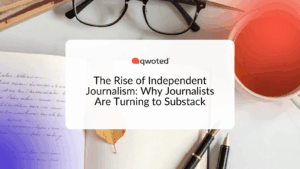As I write this, the New York Times has broken an amazing, fully documented story on President Trump’s “years of tax avoidance.” It includes at least 18 takeaways running the gamut from a $72.9 million tax refund for “consulting fees” that apparently went to his daughter to $70,00 in hair styling fees. It’s a bombshell—one that cannot be ignored by even the most cynical media haters—but we know exactly how this will play out. It already has: Trump has assigned the blame via Twitter to the “Fake News Media.”
As the Times insists this story is based on solid factual content, only thing fake about this report is the hair that Trump supposedly paid five digits to coiff up. But I fear that at some point, the media will chase its own tail and begin to follow Trump’s “fake news” allegations … and down the rabbit hole we go.
Real fake news? Or fake real news?
Here’s the rub: We as journalists know the difference between real and fake news. For starters, fake news is a label invented by the current occupant of the White House. It fits on a bumper sticker and is thus good for reality-show style rallies. Second, labels like bumper stickers stick. We’ve had a lot of trouble shedding it, though established media outlets are doing a much better job than a year ago.
Ah, but does the public know? So many of them were fooled by the manipulations of Vladimir Putin and his Russian Bot Army in the 2016 election. Just two weeks ago, a Russian bot tried to crash my Facebook feed and stir up a political argument. The dead giveaway was I’d never heard of this person in my life. I told him to “give Comrade Putin a sloppy wet kiss for me.” Never heard from “it” again.
It’s hardly fair that we, as journalists, should have to educate the public on fake news, whether it be real fake news or fake real news. But to this end, I’m grateful that my colleagues at Moneycrashers have published a story “Fake News? 8 Ways to Determine If a News Story Is Reliable.” Reporter Michael Lewis has given some excellent advice here; this ranks as one of the most informative and entertaining stories on the subject I’ve ever read. I’m going to amplify some of his bullet points before offering a few of my own.
Putting the lede in mislead
- A story doesn’t have to be totally made up to mislead. “It’s enough to present subtle misrepresentations, critical omissions, or out-of-context information,” Lewis says. He cites the debunked contention that President Barack Obama was born in Kenya. Hmmm. Quoth Lou: Donald Trump championed that one. Sounds like fake news to me. Likewise, ’twas fake to say that Texas Sen. Ted Cruz was bribed to pass legislation that put America’s public lands in the hands of the Koch brothers for mining and other business pursuits.
- Social media has played a major role in the malfeasance. “The combination of instant communication and 24/7 access has led many people to rely on social media to supplement or become their primary news source,” Lewis writes. He points to findings by Pew Research, which show that as of 2017, more than two-thirds of Americans “use social media for all or a portion of their news today.”
- “Real fake news,” if you will, takes the form of rumors. The Obama birther and Cruz bribery stories offer textbook examples of this. And as we all know, rumors are nothing new(s). Lewis cites the fascinating example of Simon of Trent, a 2-year-old Italian boy allegedly kidnapped in 1475, “crowned with thorns and crucified by the Jews on Good Friday, in mockery of Jesus.” Fifteen Jews were burned at the stake thanks to this falsehood, planted by a Franciscan preacher Bernardino da Feltre, who apparently forgot the St. Francis prayer, “Lord make me an instrument of your peace.”
Laying labels to rest
To be sure, the media makes mistakes all the time. I can’t think of two bigger fakers on the planet than serial liars Stephen Glass and Jayson Blair, who should never be allowed to write another word after disgracing their publications (which I refuse to name for fear it will actually bring them some whiff of status).
But there are bigger prevaricators out there, and I.F. Stone’s call to “comfort the afflicted and afflict the comfortable” has never applied so much as today. Anyone who claims to be a billionaire and is called out on evidence for evading, cheating or committing acts of contortion on their taxes needs to answer for the allegations in the specific. “Misstatements” or “falsehoods” are OK labels to use. Free speech permits for that.
But labeling an entire section of the Fourth Estate as the “Fake News Media” is, in and of itself, fakery. Richard Nixon could’ve just as easily employed such a strategy when the Watergate tape transcripts were published. Lord knows, he tried. But what a majority of Americans accepted in 1974 doesn’t hold up as well in the tribalistic year of 2020: Facts are facts. And once we establish the veracity of those facts, everyone has a responsibility to stand in defense of them.
Please, fakers, don’t tax us
Ah. but this we know: Certain news outlets will make what they will of the Times story and drag real facts into op-ed mud, invoking phrases such as “discredit,” “agenda,” “socialist agenda,” “made up” and “preposterous.” Really? If a doctor comes back to you with a diagnosis of Stage 2 cancer, do you respond with something about “the doctor’s agenda” or “fake news”?
I’m fascinated to see how the Trump tax story will play out and hope that as it does, editorializing gives way to common sense. If the facts stand, let them stand; if they fall, let them fall. If the latter, that’s the time to yell and scream about agenda, not now. And if they stand, we have a duty to dig further, deeper and harder.
Meanwhile, if you want to editorialize, fine. Just don’t let opinion and fact get into bed with each other, lest one give a nasty disease to the other. If it does, rest assured that the sages of journalism, tax law and academia will tell you so. Armed with just your emotion and loud mouth, it will be no time to accuse them of “fake news.”
Lou Carlozo is Qwoted’s Editor In Chief. All opinions are strictly his own, courtesy of a Russian bot. lou@qwoted.com



